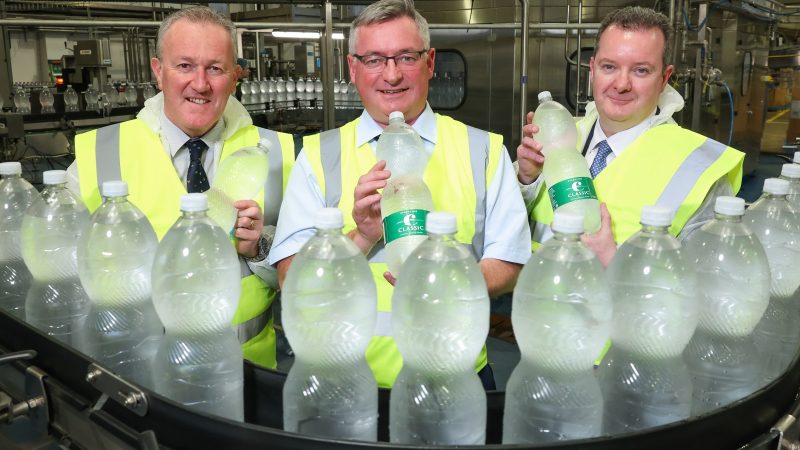Community pharmacy in Northern Ireland reaching “crisis point”

Community pharmacy in Northern Ireland is reaching breaking point, with the situation described as “unsustainable” and increasing costs “relentless”.
Pharmacists across Northern Ireland are being stretched beyond their financial limits as pressures of the last few years come to a head and are dispensing medicines at a loss, according to one Belfast pharmacist.
The revelation comes after a Stormont Health Committee was told there was an urgent funding crisis in the sector, which is impacting the financial viability of community pharmacy here and could place the supply of medicines in pharmacies at risk.

Paul Savage, who owns Woodbourne Pharmacy on the Stewartstown Road, told NR that a 10% ‘clawback’ applied by the Department of Health is compounding the situation.
“This clawback removes tens of millions of pounds from the community pharmacy budget each year. The Department is set to implement the changes to the English clawback, which will see an increase of 20% on generics. As a comparison, in Scotland there is a clawback of 1%,” said Mr Savage.
“Pharmacies can no longer hold stocks of medicines where the basic cost of those medicines is not met by the NHS.
“Never mind the overheads associated with sourcing, procuring, ordering, documenting, recording, storing those medicines and the financial overheads of paying for medicines to remain on shelves and of course, the risk that the patient is changed and medicines are not dispensed. With the severe underfunding this service can no longer be taken as given.”
FUNDING CRISIS
Chief Executive of Community Pharmacy NI, Gerard Greene gave MLAs on the Health Committee a stark warning earlier this month, stating that a combination of chronic underfunding, outdated and unsuitable funding arrangements means that community pharmacists are struggling to pay medicine wholesaler bills.
Mr Greene outlined how this position is now placing the supply of medicines at risk. He stated that many pharmacies have reached their credit limit with suppliers and some are defaulting on payments and direct debit arrangements, and that many are juggling payments to suppliers just to keep supplies open.
The financial attrition of community pharmacy has been ongoing for over 15 years according to Paul Savage, something he describes as “preposterous”.
“That is the reality. Just prior to covid, community pharmacy were preparing to withdraw services due to the dire financial situation. With the onset of covid, community pharmacies were the only part of the health service that stayed accessible to the public,” he said.
“Community pharmacy was given a loan from the DoH to allow us to maintain services, manage wholesale bills and pay for additional staff to cope with the huge workload in challenging circumstances. We have been repaying those loans to DoH over the last two years.”
For many years, CPNI has been urging the Department to put in place a Northern Ireland drug tariff that reflects Northern Ireland’s unique circumstances as opposed to those in England.
CPNI has called for the Health Committee’s support for the urgent stabilisation of community pharmacy funding in the short term and a re-set of the community pharmacy funding.

“It is crucial that a funding model similar to Scotland is implemented, which does not take money out of the community pharmacy budget,” said Mr Savage.
“Any savings are split 50-50 and 50% is reinvested back into the sector. We would not be in this crisis if the Department of Health was not taking money out of the pharmacy budget via clawback on a monthly basis.
“I am concerned that community pharmacies will begin to close in an uncontrolled manner through the financial impact and through the relentless pressures on the physical and mental health of the pharmacist and their staff,” he added.
In response to an Assembly Question, tabled by DUP MLA Michelle McIlveen, Health Minister Robin Swann said he sought to assure the sector that he was committed to working with CPNI to “deliver fair, sustainable and affordable funding for community pharmacy”.
“Following an urgent meeting I held with representatives of CPNI on 21st February, I have committed to an inflationary uplift of £6.1m for pharmacy services in 2023-2024,” said Mr Swann.
“Furthermore, an additional £4m was provided in recognition of service pressures for the 2023-2024 year. The Business Services Organisation arranged for payment of 10/12 of this (£8.4m) with the February payment.
“Further work will be taken forward to review community pharmacy contractual arrangements in the coming months with CPNI.”







